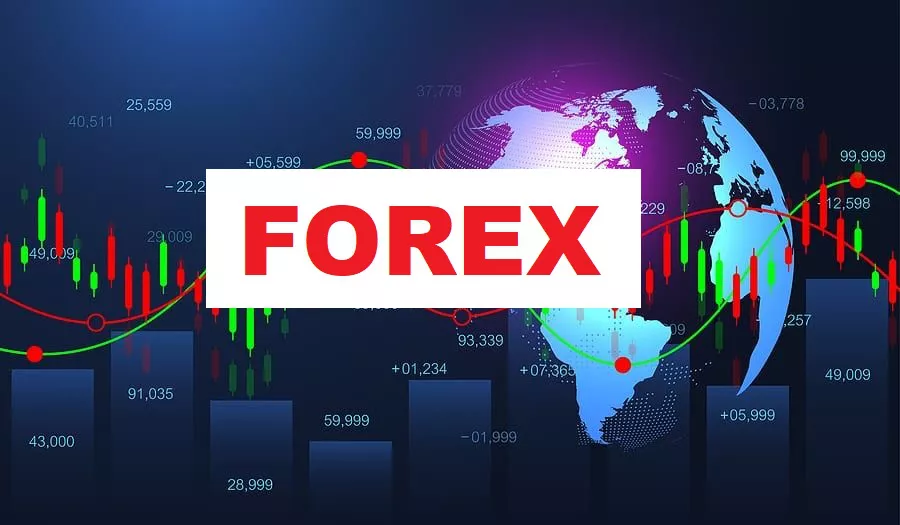The foreign exchange (forex or FX) market is the largest and most liquid financial market globally, with a daily trading volume reaching 7.5trillion.Everysecond,about850 million changes hands in this market, making it an attractive venture for many investors. While it was once the exclusive domain of banks and financial institutions, the advent of online trading platforms has opened the door for individual investors to participate in currency trading.
Starting a forex business involves understanding the dynamics of the market, developing a solid strategy, and managing risks effectively. This article will guide you through the essential steps to start a forex business, from understanding the basics to managing your trading activities.
Understanding the Forex Market
The foreign exchange market is where currencies are traded. Unlike other financial markets, it has no central marketplace. Instead, currency trading is conducted electronically over the counter (OTC). Transactions occur via computer networks that connect traders worldwide.
The main forex markets are open 24 hours a day, five days a week, from Sunday, 5 p.m. ET, until Friday, 4 p.m. ET. Currencies are traded globally, but most of the action happens in major financial centers. A 24-hour trading day begins in the Asia-Pacific region, then moves to major centers in Europe, and finally to North America, where it ends with the U.S. trading session.
Currencies are traded in pairs, such as EUR/USD, representing the euro against the U.S. dollar. Forex markets exist as spot (cash) and derivatives markets, offering forwards, futures, options, and currency swaps. Market participants may use forex to hedge against international currency and interest rate risks, speculate on geopolitical events, and diversify portfolios.
Why Start a Forex Business?
Liquidity: The forex market is highly liquid, meaning you can buy and sell currencies quickly and easily without significant price movements.
Accessibility: With the rise of online trading platforms, individual investors can easily access the forex market from anywhere in the world.
Volatility: Currency prices fluctuate constantly, providing numerous opportunities for traders to profit from changes in currency values.
Diversification: Forex trading allows investors to diversify their portfolios beyond traditional assets like stocks and bonds.
Leverage: Forex brokers often offer high leverage, enabling traders to control larger positions with a relatively small deposit.
Steps to Start a Forex Business
1. Educate Yourself
Before diving into the forex market, it’s crucial to educate yourself about its intricacies. Understand the basic concepts, such as currency pairs, pips, leverage, and margin. Learn about the different types of forex markets, including spot, forwards, futures, options, and swaps.
Read books, attend seminars, and watch educational videos to gain a comprehensive understanding of the market. Consider taking courses or getting mentorship from experienced forex traders.
2. Develop a Trading Strategy
A solid trading strategy is essential for success in the forex market. Your strategy should include:
Market Analysis: Fundamental analysis involves studying economic indicators, news events, and geopolitical factors that can affect currency prices. Technical analysis focuses on chart patterns, indicators, and historical price data to predict future price movements.
Risk Management: Determine your risk tolerance and set clear risk management guidelines. Use stop-loss orders to limit potential losses and take profits when your targets are met.
Money Management: Allocate a portion of your capital to forex trading and stick to it. Avoid overtrading and always have a plan for managing your funds.
3. Choose a Forex Broker
A forex broker is a financial intermediary that provides access to the forex market. When choosing a broker, consider the following factors:
Regulation: Ensure the broker is regulated by a reputable financial authority, such as the National Futures Association (NFA) in the U.S. or the Financial Conduct Authority (FCA) in the U.K.
Fees and Commissions: Compare the fees and commissions charged by different brokers. Look for brokers that offer competitive pricing and transparent fee structures.
Trading Platform: Evaluate the trading platform’s usability, features, and tools. Ensure it meets your trading needs and is compatible with your devices.
Customer Support: Choose a broker that offers excellent customer support. Look for brokers with responsive customer service teams and comprehensive educational resources.
4. Open a Trading Account
Once you’ve chosen a broker, you can open a trading account. Provide the necessary personal and financial information, and fund your account with the desired amount of capital.
Make sure to read and understand the terms and conditions of your trading account, including margin requirements, leverage limits, and withdrawal policies.
5. Practice Trading
Before risking real money, practice trading with a demo account. Demo accounts provide a risk-free environment to test your trading strategy and get familiar with the trading platform.
Use the demo account to refine your strategy, develop trading skills, and build confidence. Once you’re comfortable with your trading approach, you can switch to a real account.
6. Start Trading
With your trading account funded and your strategy in place, you can start trading. Begin with small trades to test the waters and gradually increase your position sizes as you gain experience and confidence.
Always follow your trading plan and risk management guidelines. Keep a detailed trading journal to track your performance, identify mistakes, and improve your strategy.
7. Monitor and Adjust Your Strategy
The forex market is constantly changing, and your trading strategy should evolve accordingly. Regularly monitor your performance and adjust your strategy based on market conditions and your trading goals.
Stay updated on economic news and geopolitical events that can affect currency prices. Use technical analysis tools to identify trends, patterns, and potential trading opportunities.
Managing Risks in Forex Trading
Risk management is crucial for success in the forex market. Here are some tips to help you manage risks effectively:
Set Clear Risk Limits: Determine the maximum amount of capital you’re willing to risk per trade and per day. Stick to these limits to avoid overtrading and significant losses.
Use Stop-Loss Orders: Place stop-loss orders to limit potential losses. These orders automatically close your trade if the market moves against you by a specified amount.
Diversify Your Trades: Avoid putting all your eggs in one basket. Spread your trades across different currency pairs and time frames to diversify your risk.
Avoid Overtrading: Overtrading can lead to increased fees, commissions, and potential losses. Trade only when you have a clear trading signal and stick to your trading plan.
Stay Updated on Market News: Keep an eye on economic news and geopolitical events that can affect currency prices. Use this information to adjust your trading strategy and manage your risks accordingly.
Advanced Strategies for Forex Trading
Once you’ve gained experience and confidence in the forex market, you may want to explore advanced trading strategies. Here are some options to consider:
Scalping: Scalping involves making numerous small trades throughout the day to profit from short-term price fluctuations. This strategy requires fast decision-making, discipline, and a robust trading platform.
Swing Trading: Swing trading focuses on capturing larger price movements over several days or weeks. This strategy involves identifying trends and trading in the direction of the trend.
Position Trading: Position trading involves holding trades for an extended period, such as several weeks or months. This strategy requires patience, a long-term perspective, and a solid understanding of market fundamentals.
Automated Trading: Automated trading involves using software programs to execute trades based on predefined rules and algorithms. This strategy can be useful for traders who want to remove emotion from their trading decisions and trade consistently.
Conclusion
Starting a forex business can be a rewarding venture, but it requires careful planning, education, and risk management. By understanding the basics of the forex market, developing a solid trading strategy, and choosing a reputable broker, you can set the foundation for a successful forex business.
Remember, the forex market is highly volatile and unpredictable. Always manage your risks effectively, stay updated on market news, and continuously refine your trading strategy. With dedication, patience, and discipline, you can achieve success in the forex market.
Related topics:

































